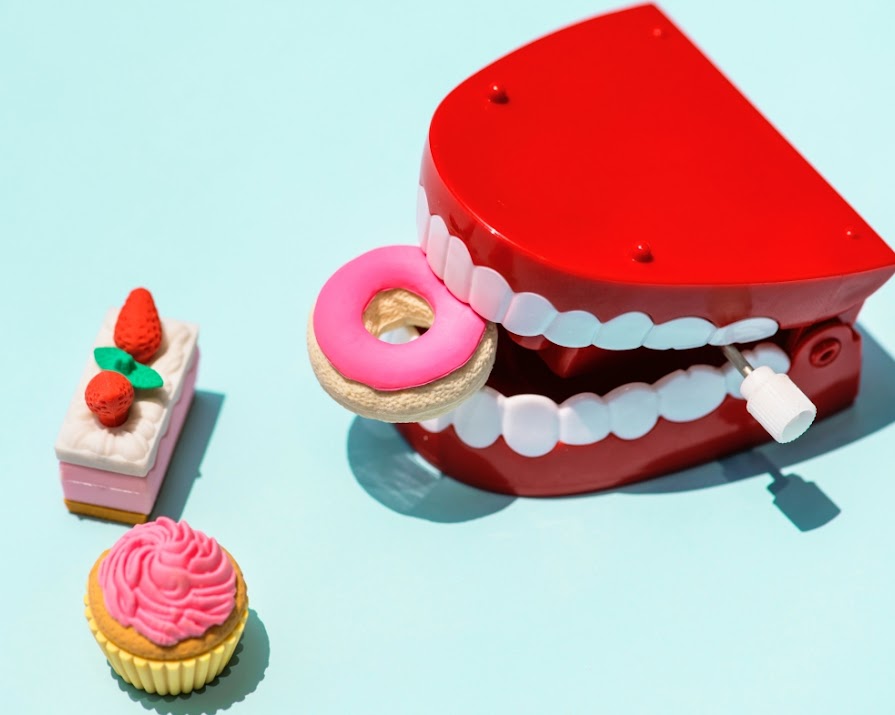Women are still tirelessly striving to be thinner, but now they can’t even admit to it
By Sophie White
29th Jun 2018
29th Jun 2018
The language around what we put into our bodies has become something of a minefield in recent years. “Clean eating” now has nefarious connotations while “diet” is verging on profanity says Sophie White
Growing up in the 80s and 90s, diet culture was so entrenched that to say you were on a diet was practically a badge of honour. Of course said diet basically consisted of Diet Coke and bananas so, like many diets, not a healthy approach.
The diet industry has made many millionaires in the last decades. The books, apps, DVDs, programmes all captialise on our eternal grappling with our bodies. And yes it is an eternal grappling because this isn’t simply a scourge of our contemporary image-obsessed culture. Before Weight Watchers and Revenge Body – two profoundly sinister monikers, I might add, Weight Watchers sound like some Illuminati type group monitoring Curly Wurly-consumption from some shadowy perch – there was ‘diaita’ in Ancient Greece.
We also have the Greeks to thank for the societal propensity to place slim bodies as the aesthetic ideal because the body considered to be ideal was male. Natch.
Interesting that pretty much from its inception, the system for attaining the physical “ideal” was rigged against women. Men naturally tend towards less body fat and more muscle. As Christianity gained popularity more of our contemporary moralising regarding food was shaped through concepts like temptation and gluttony.
Fast forward to the nineties and noughties when weight loss was treated as a sort of hero’s journey of the magazine racks. Many celebs appeared to exist on a roller-coaster of fluctuating body size. The cycle usually began with them being “loved up”, then “piling on the pounds” in the wake of being “DUMPED” before returning triumphantly to “flaunt their new bod”. This period of approval would invariably be short-lived before the “gaunt look” would begin raising “concerns”. Sigh. The method of assiduously tracking female celebrities through their physical changes is essentially a microcosm of the wider habit we have of drawing conclusions about those around us – their health, happiness and worth as told by the size of their bodies.
The tide around this knotty issue has been turning for some time with the resurgence of Body Positivity thanks to activism, most notably on Instagram. Terms like ‘thin privilege’ and ‘health trolling’ are calling on us to reexamine the values so deeply held by our society when it comes to fat. More and more people are aware of the damage wrecked on bigger people by way of exclusion, casual bullying and outright abuse. With a new-found awareness of the experiences of people living in larger bodies, the word ‘diet’ itself now carries negative connotations. It has become a throwback term that conjures up retrograde preoccupations with thinness. Talking about dieting, beyond merely being boring, is gradually being recognised as politically incorrect. The shift is a necessary one, aside from the fact that fat-shaming is harmful, eating disorders have the highest mortality rate of any mental disorder, one in five people with anorexia will die as a result of their illness.
However, dieting needed a re-brand. Enter #cleaneating – 39 million posts on Instagram as of publish. The explosion of clean eating was hardly a shock given the main proponents of the movement, a movement that purported to not be about dieting, were thin white women. While clean eating appeared to be more holistic than the dogmatic and prescriptive diets, in actuality the movement demonised whole food groups like dairy and foods containing gluten and once again entwined our food choices with purity, morality and aspiration.
Clean eating has had a one of the swiftest falls from grace on record. In January 2015, the debut cookbook by clean eating high priestess Ella Mills (neé Woodward aka Deliciously Ella) sold 32,000 copies in the first week of sale and went on to become the fastest-selling debut cookbook of all time. Cut to two years later and Mills appeared on a Horizon documentary Clean Eating – The Dirty Truth.
“My problem with the word clean is that it has become too complicated. It has become too loaded,” says Mills. “When I first read the term, it meant natural, unprocessed. Now it doesn’t mean that at all. It means diet. It means fad.”
The narrative on the magazine rack has subtly altered too, now nobody wants to admit to trying to be thin (let’s shelve for a moment the rightness or wrongness of wanting to be thin). Now a celebrity must be “strong” not skinny, which is all very admirable but it seems disingenuous to pretend that’s what it’s all about. Women who do admit to wanting a thinner body are derided as author and columnist, Polly Vernon reported. This model of accidental hotness is no better than the dreary calorie-counting one, it still inspires a sense of failure in those who consume it. Take the Celeb New Mum who lost the baby weight from “running around after the baby”. Seriously? The baby that can barely roll over yet? Nobody wants to appear to be trying to look good anymore. The trying element seems to be the most distasteful thing of all.
Author, Lindy West highlighted this exhausting paradox in a recent essay in Self:
“We’re supposed to be hot in all the old ways while appearing liberated in the new ones. We’re expected to devote ourselves to weight loss as much as our mothers and grandmothers did, while at the same time orchestrating an elaborate cover-up: this modern weight loss is always a coincidence, a byproduct of our ‘wellness practice’, an incidental surprise.”
The way we talk about our bodies is changing but the shift feels semantic, many women are still tirelessly striving to minimise themselves but now they can’t even admit to it. “Even if they don’t use the D word,” writes Patrick Rogers in Allure. “More than half of all U.S. consumers are on a diet of some kind, according to a 2015 report by the market-research firm Mintel.”
Removing the rewards system around dieting is our only hope of changing the conversation. When “you look amazing” no longer means “you look smaller”, only then will we free ourselves of the “being good” and “being bad” cycle of indulgence and self-flagellation. Intuitive eating is an approach that attempts to wrest food out of the clutches of morality. It’s not a new concept – the original handbook by Evelyn Tribole and Elyse Resch was published in the mid 90s – but one that is gradually gaining traction almost in time with our cultural expansion of what is considered beautiful. IE recognises that our habits and attitudes towards eating and food have been corrupted by diet culture and the diet industry – an industry that has profit rather than well-being at the core of their value system.
Changing the language around food, our bodies and our consumption is the first step in the right direction but there’s a ways to go. Hopefully the next generation will benefit from a new narrative of satisfying our bellies without wrecking our heads.























